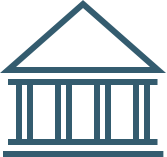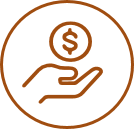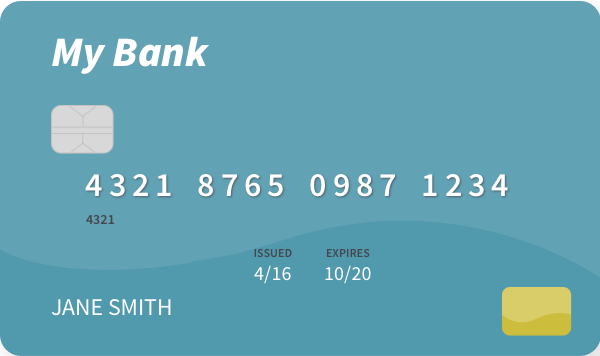Article summary: You have options for managing your cash that don’t require a bank. Here’s why you should open a bank account anyway.
There are lots of digital options for handling your money today. While you may be able to get by without a bank, the truth is you will likely have more hassles and pay more in fees for common financial transactions if you don’t open a bank account. Plus, banks offer services that can’t be matched by nonbank alternatives like payday lenders, cash-checking services, and online payment apps.
At a bank, you get more than access to checking accounts and savings accounts. You also get benefits like fraud protection and deposit insurance, access to various loan programs, connection to financial professionals, and other options you won’t find using a nonbank alternative.
Here’s what to know about the services banks offer, what makes them worthy of your trust, and how they can fit into your financial life.
WHAT DO bankS OFFER THAT OTHER FINANCIAL APPS OR SERVICES CAN’T?

When you open a bank account, you get:
- Security. It’s safer to open a bank account and deposit funds in the account than to carry around a lot of cash. If you cash a check at a check-cashing service, there is no ability to deposit funds, creating more risk for your money to be lost, stolen, or damaged.
- Cost savings. At your bank, you can cash or deposit a check with no fee, and there usually is no fee to transfer money using your bank’s mobile app. However, using a check-cashing service or payday lender can cost you up to 10% of the value of your check, while some money transfer services charge monthly service fees or a fee for each transaction. [1]
- Convenience. When you open a bank account, you have multiple ways to access your money — checks, ATMs, online banking, and more. If you use direct deposit for your paycheck or government benefits, you’ll often get access to your money sooner than you would if you waited for a paper check.
- Access to financial professionals. Banks offer a lot of financial services beyond savings accounts and checking accounts, like loans and investment accounts. Knowledgeable advice from financial professionals at your bank can be a valuable resource to help you and your family build a better financial future.
WHY SHOULD YOU TRUST BANKS?
Banks are required to follow laws and regulations, and the government monitors banks to ensure they are acting in your best interest. The Federal Deposit Insurance Corporation (FDIC) insures your deposit, so you’ll get your money back (up to $250,000 per depositor, per account ownership category) if anything happens to the bank. To find a bank backed by the FDIC, use its BankFind tool. Bank On’s list of certified low- or no-cost bank accounts is also a good resource.
Banks also use sophisticated security systems and technology to protect your money from theft or fraud. These tools can flag suspicious activity on your account to help you avoid scammers.
WHY DO I NEED A BANK ACCOUNT?

None of the alternatives, like nonbank financial apps or check-cashing services, can replace what a bank offers. You may be able to get by without a bank account, but in the end you will likely pay more in fees and service charges for many common financial transactions. Beyond that, some things are just easier if you open a bank account. [2]
Here are some common questions about how bank accounts can impact everyday life. [3]
- Do I need a bank account to get paid? Some employers require their employees to be paid via direct deposit into a savings or checking account. Waiting for a paper check can take longer, and check-cashing services will take a big bite out of your earnings. It’s also easier (and faster) to get government benefits or tax returns deposited directly into your bank account.
- Do I need a bank account to qualify for a credit card or a loan? Some credit card companies don’t require you to have a bank account, but it’s easier to get a card if you do. Most lenders will require recent bank statements, using the information about your savings account, checking account, and assets to determine their risk if they issue the loan.
- Do I need a bank account to pay rent? While some landlords accept rent in cash, gathering enough cash each month can be a hassle and has security risks. Keeping your money in a bank account and paying rent by check, or electronic transfer if you have the option, is easier and safer.
- Do I need a bank account to pay bills? You need a bank account to pay your bills online or over the phone, or by mailing a check. Most utility companies will accept money orders, but you’ll pay a fee for that service every month, which adds up. And making a monthly trip to the utility office to pay in cash is a hassle. With a bank account, you have more convenient options to pay bills and even shop online without leaving home.
SOURCES
- Johnson, J. And Jones, J. (June 26, 2023). What is a check cashing service?
Gobler, E. (December 31, 2024). Where Can You Cash Checks?
- Federal Deposit Insurance Corporation (FDIC). TOP REASONS TO #GETBANKED
U.S. Government Accountability Office. (April 12, 2022). More than 7 Million U.S. Households Have No Bank Account. Why?
Palasciano, A. (October 14, 2025). Banking 101
Newberry, E. (October 23, 2023). Here’s What Happens When You Don’t Have a Bank Account
Jones, M. (March 14, 2024). What Is a Bank Account?
Axelton, A. (November 20, 2023). Do I Need a Checking Account?
Federal Deposit Insurance Corporation (FDIC). (April 2023). Your First Job?
Eberlin, E. (October 3, 2024). Which Rent Payment Options Should Landlords Accept?
- Consumer Financial Protection Bureau (CFPB). (August 2022). Ways to receive your money
Consumer Financial Protection Bureau (CFPB). Ways to pay your bills
Boyd, C. (May 5, 2025). How to Avoid Bank Fees
Eberlin, E. (October 3, 2024). Which Rent Payment Options Should Landlords Accept?
Lambarena, M. (November 7, 2025). Can I Pay Rent With a Credit Card?
Oklahoma Central Credit Union. How Do You Finance a Car Through a Financial Institution?
Consumer Financial Protection Bureau (CFPB). (November 8, 2022). What are the different ways to buy or finance a car or vehicle?
S, N. Title Loans Without a Bank Account
Mei, R. (October 27, 2021). Can I get a loan with no bank account?
Burnette, M. (September 19, 2025). Online Bill Pay: What It Is and Why to Use It
Lambarena, M. (November 7, 2025). Can I Pay Rent With a Credit Card?
Want to learn more about opening a bank account? Discover more here:

